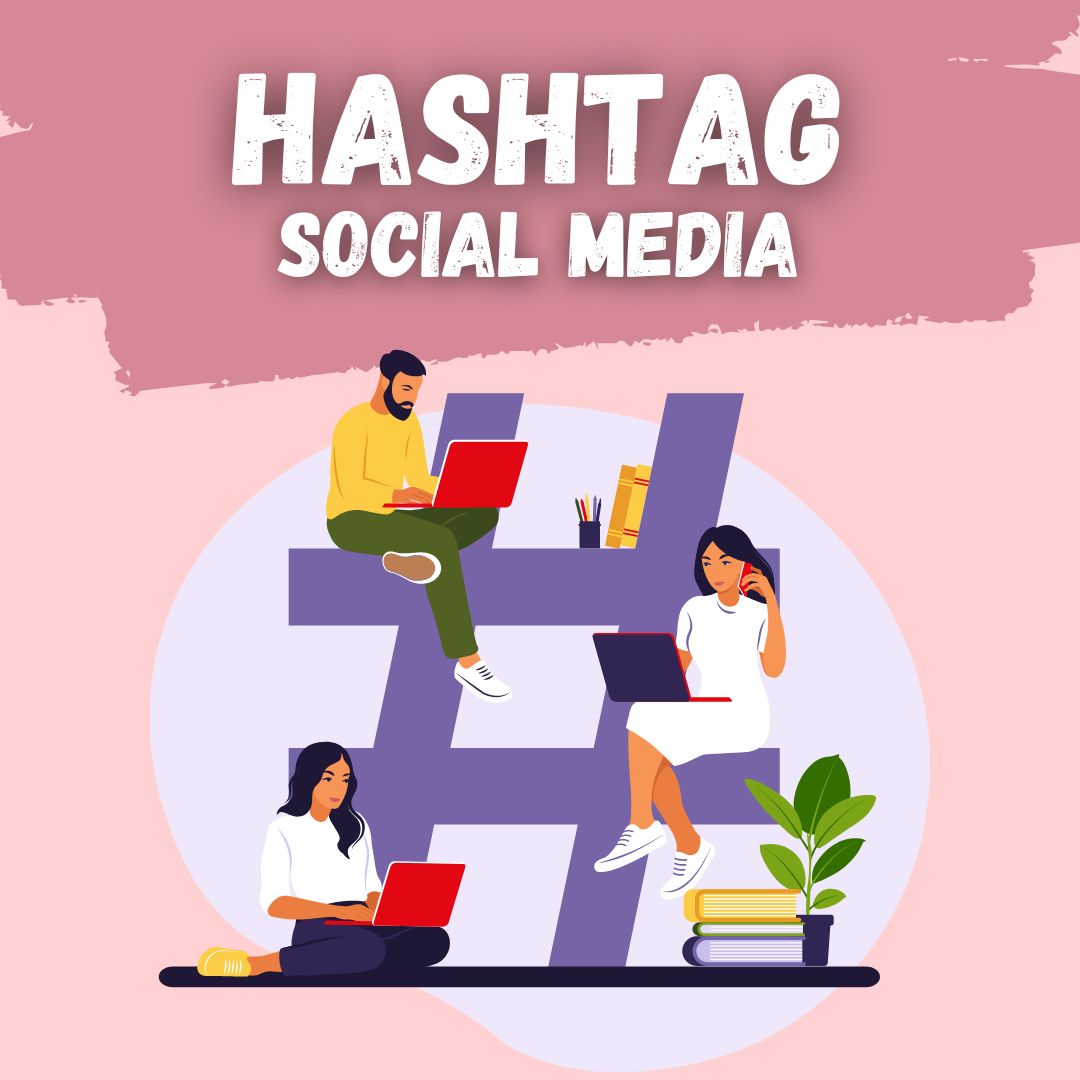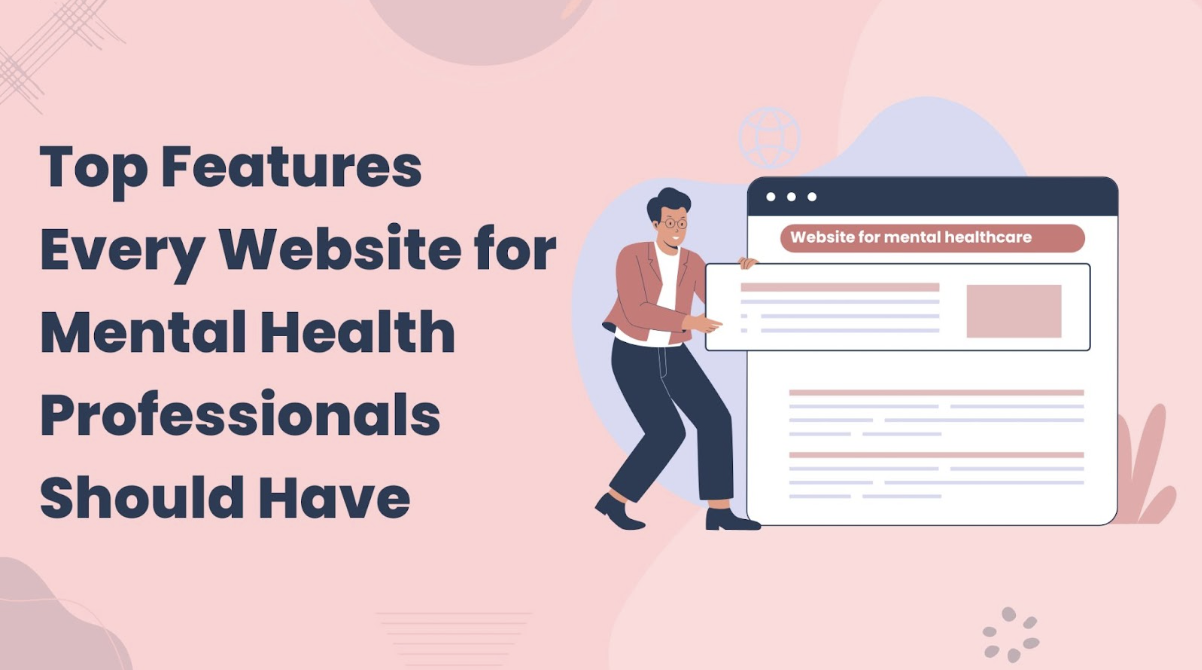The Role of Social Media in Mental Health Awareness
Understanding how social media platforms have been essential in creating awareness, supporting mental health campaigns, and giving professionals in mental healthcare a digital presence through website design is crucial given the rising prevalence of mental health issues worldwide. The success of mental health campaigns, the necessity of well-designed websites for professionals in that field, and the intricate role of social media in raising awareness of mental health are all discussed in this article.

The way people interact, share information, and spread awareness of numerous social issues has been revolutionized by social media platforms. The understanding of mental health is one important area where social media has had a big impact. Understanding how social media platforms have been essential in creating awareness, supporting mental health campaigns, and giving professionals in mental healthcare a digital presence through website design is crucial given the rising prevalence of mental health issues worldwide. The success of mental health campaigns, the necessity of well-designed websites for professionals in that field, and the intricate role of social media in raising awareness of mental health are all discussed in this article.
Social Media's Influence on Mental Health Awareness:
Social media's Reach and Accessibility: With billions of active users, social media platforms like Facebook, Twitter, Instagram, and YouTube are effective instruments for spreading news and creating awareness. Their accessibility enables a wide audience to get resources, personal accounts, and information regarding issues related to mental health from mental health organisations, specialists, and individuals.
De-stigmatizing Mental Health:
Social media has been crucial in the fight against stigmatisation of mental health issues. People can share their experiences and foster a sense of community through personal narratives, testimonials, and informative material. This encourages compassion, understanding, and acceptance, which lowers stigma and boosts support for people with mental health issues.
Several strategies can be used to effectively use social media to raise awareness of mental health:
First and foremost, both companies and people should develop interesting and appealing content that informs, educates, and promotes candid conversations around mental health. Sharing informational resources, personal narratives, self-care advice, and links for getting guidance are a few examples of this.
In order to organise and promote discussions around mental health on social media, hashtags are essential. People can participate in larger discussions and make sure their information is seen by more people by utilising pertinent and well-known hashtags like #MentalHealthMatters or #EndTheStigma.
Infographics and videos are two examples of visual content that may communicate complex information in a way that is easier to understand and share. Utilising visually appealing and informative material aids in capturing interest, boosting engagement, and facilitating the exchange of knowledge.
The use of social media platforms requires engagement. A sense of support and community can be developed through responding to messages, comments, and discussions. Offering empathy, providing resources, and helpful advise can all benefit people who are looking for support or information.
The influence of mental health information can be substantially enhanced by working with influencers, mental health experts, and organisations. Promoting campaigns, boosting participation, and fostering meaningful conversations can all be achieved by collaborating with people or organisations who have a large following and a solid reputation in the mental health field.
Raising Awareness through Mental Health Campaigns:
Social Media Campaigns: To increase awareness and promote conversations about mental health, mental health organizations and advocates run social media campaigns. To engage users, encourage discussion, and share contents, these campaigns frequently make use of hashtags, videos, infographics, and personal tales. Examples like #BellLetsTalk, #WorldMentalHealthDay, and #EndTheStigma have been successful in drawing attention and support from all across the world.
Virality and Amplification:
Social media's viral nature makes it possible for mental health initiatives to quickly reach a larger audience. Users that interact with and share content about mental health make it more visible and have a bigger impact. This enables initiatives to reach those who might not otherwise be exposed to information on mental health.
Websites for Psychologists Enhancing Professional Presence:
Importance of Digital Presence: For mental health professionals to develop their online presence, having a well-designed website is essential. Websites give psychologists a forum to highlight their expertise, offer resources, and connect with potential clients. A professional website also improves credibility and gives those looking for mental health support a way to contact certified specialists.
Website Design Considerations:
A user-friendly interface, the inclusion of pertinent and accurate information, and upholding an appearance that fosters comfort and trust are all essential components of an effective website design for mental health professionals. Features like blog sections, secure messaging platforms, and online appointment scheduling can improve user interaction and experience overall.
Social Media and Website Integration:
Cross-promotion and Reach: Social media interaction with the websites of mental health professionals enables cross-promotion and raises visibility. Psychologists can increase the number of people who follow their social media accounts and spread their ideas by including social media buttons and sharing options on their websites.
Interactive Engagement:
By integrating social media with their websites, mental health professionals can interact with their audience through online forums, live chats, and support groups. These interactive elements promote a sense of community, offer on-demand guidance, and encourage ongoing discussions about mental health.
Social media is crucial in promoting mental health awareness because it gives individuals, groups, and professionals a forum to exchange experiences, expertise, and resources in this particular field. Social media platforms, which have billions of active users, provide exceptional accessibility and reach, making it simpler than ever to share information and interact with a large audience. Social media combats the stigma attached to mental health by using real-life narratives and testimonies, which promotes empathy, understanding, and acceptance. On social media, mental health campaigns employ hashtags, videos, infographics, and personal stories to engage users, encourage discussion, and offer resources. These initiatives can reach a wider audience thanks to the social media content's viral nature, which amplifies their influence and raises awareness of them.
Social media has grown to be an effective tool for increasing discussions regarding mental health and eradicating stigma associated with these medical conditions. Social media campaigns for mental health have the potential to engage a large audience, spread awareness, and increase message intensity. Additionally, professionally created websites for mental health professionals give them a digital platform to strengthen their online profile, offer resources, and establish connections with people looking for mental health support. We can continue to raise awareness about mental health, provide guidance to those in need, and work towards a more mentally healthy society by utilising social media and implementing efficient website design strategies.
FAQs
How does social media enhance mental health awareness?
It reaches billions with resources, personal stories, and information, breaking down geographic barriers.What role does social media play in reducing mental health stigma?
It fosters community and empathy through shared experiences and testimonials, encouraging acceptance.What strategies make social media effective for mental health awareness?
Use engaging content, hashtags, visual media, engagement, and collaborations with influencers.How do mental health campaigns benefit from social media?
Campaigns like #BellLetsTalk use hashtags and viral content to boost global awareness and discussion.Why is a well-designed website important for mental health professionals?
It builds credibility, shares resources, and provides a platform for client engagement and appointments.How can websites and social media work together for professionals?
Integration enables cross-promotion, interactive forums, and increased visibility for mental health support.Where can mental health professionals find website design solutions?
Explore options at LifeHetu.
Related Reads. Similar Blogs to Check Out.



